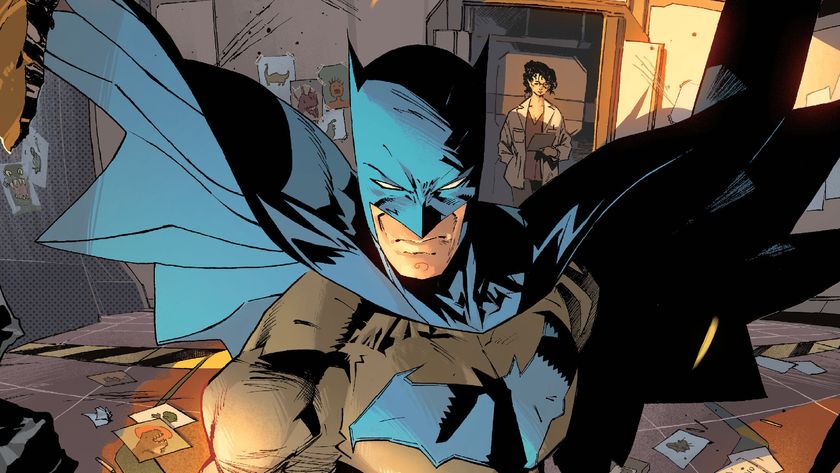Why Crytek is dropping Homefront and doubling down on F2P
Crytek is going through some pretty drastic changes right about now. The company known for making the Crysis series and Ryse: Son of Rome reached a breaking point today after weeks of bankruptcy rumors and reported missed payments to employees. Crytek UK, the team that had been working on Homefront: The Revolution, is no more. Crytek USA is being scaled down from development studio to a small support team. Koch Media (which owns Deep Silver) has acquired the rights to the Homefront brand, and will continue work on The Revolution through its new in-house developer Dambuster Studios, which comprises ex-Crytek UK employees. Tough times for sure.
It's always a downer when a studio closes up shop, but Crytek UK's closure seems to point towards an even bigger shift than Homefront changing hands. There are two distinct trends happening here, and they both have everything to do with low-risk decisions.

Companies that make and license game engines seem to care less about competing in retail markets with their own games. And at the same time, when these companies do opt to make games on their own engines, they default to the inherently safe bet of the free-to-play model instead of big-scale budgets. Both strategies are about playing it safe and letting other companies take the risks.
Try this analogy on for size. Game engines are like licensed-out typewriters--once you've made one, your hard work is pretty much done. It's up to others to take what you've made and do something with it, and no matter if the book they write does well or not, you're still making a profit. And, if you do want to write something on your own typewriter, you don't have to go all-out and spend years of your life coming up with the perfect game-I-mean-book. You can just go small, and if your work does prove to be popular and generate a lot of microtransactions, so much the better. Listen, it's not the best analogy ever written, but I think you're picking up what I'm putting down.

Now stick with me on this one. Crytek is part of a trinity of companies with widely used, widely available high-end game engines. There's Epic Games with Unreal 4, Valve with Source, and Crytek with CryEngine. And all three of these game industry giants are putting their efforts into the free-to-play space. Crytek has the military shooter Warface, with two more F2P games on the way in Arena of Fate and Hunt: Horrors of a Gilded Age. Epic Games is similarly invested in free-to-play, with the model already announced for the upcoming Fortnite and new Unreal Tournament. And Valve would probably do just fine for itself if it stuck with the F2P Dota 2 and Team Fortress 2 for the foreseeable future. Portal 2 from 2011 is Valve's most recent retail release, and lord knows when we'll be getting… y'know… THAT game. With the dude in the glasses. Not Gabe Newell.
All three companies have a history of acquiring, and later letting go of, external game studios. After THQ disintegrated, Crytek bought up Vigil Games, makers of the Darksiders series, and converted it into Crytek USA. As of today, we know the unhappy ending to that story. Epic Games also picked up a piece from THQ's remains in the form of Big Huge Games (Kingdoms of Amalur, Rise of Nations) and renamed it Epic Baltimore. That studio was eventually renamed Impossible Studios (a prophetic pick, I'm afraid to say) and was shut down before it could release Infinity Blade: Dungeons. Valve bought up Turtle Rock Studios, renamed it Valve South, then gave it the boot after Left 4 Dead (with the exception of some L4D DLC later down the line). Are you seeing these parallels?! I'm like Jim Carrey in The Number 23.

These acquisitions suggest that at one time, all three companies were interested in developing ambitious games in the same vein as Darksiders 2 or Kingdoms of Amalur. But things change, particularly markets. Free-to-play seems to where all the money's at these days, and developing games on huge, triple-A-caliber budgets is riskier than ever. Crytek, Epic Games, and Valve have all opted to go a much safer route: develop free-to-play games on their own proprietary engines. That, in turn, gives those game engines a wider audience, and frees up resources for engine support with other developers, be they big-name or indie.
Sign up to the 12DOVE Newsletter
Weekly digests, tales from the communities you love, and more
Crysis series composer Graeme Norgate, formerly of Crytek UK and now of Dambuster Studios, put out a tweet announcing his move that had a nice little dig: calling Crytek "Crytanic." And while Crytek may be going through some very significant changes at the moment, it doesn't seem to be as disastrous as the Titanic sinking. It's not that Crytek is going to implode and be whisked away to the game studio equivalent of an elephant graveyard. It's just that the Crytek you knew--a studio that tackles huge undertakings like Crysis 3 and Ryse: Son of Rome--is no more. Like Valve and Epic Games before it, Crytek is shifting away from big games towards smaller, safer games in the free-to-play market.
Lucas Sullivan is the former US Managing Editor of 12DOVE. Lucas spent seven years working for GR, starting as an Associate Editor in 2012 before climbing the ranks. He left us in 2019 to pursue a career path on the other side of the fence, joining 2K Games as a Global Content Manager. Lucas doesn't get to write about games like Borderlands and Mafia anymore, but he does get to help make and market them.
Most Popular








